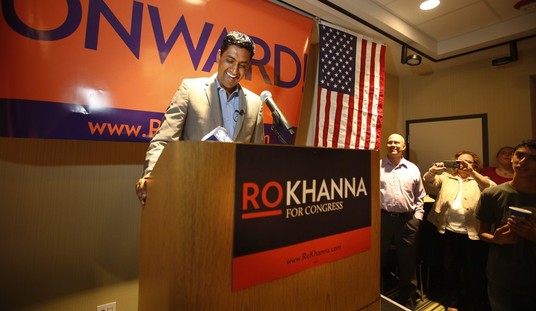In the wake of New York City’s first confirmed case of Ebola, city officials rushed to assure New Yorkers that they had nothing to fear. This led to an odd claim from the city’s health commissioner that Dr. Craig Spencer had “self-isolated” to ensure safety, even as news outlets detailed both his travels and his health reports:
“We know that he left his apartment and so that he — self-quarantine would have meant he never left his apartment. But he did self-isolate in the sense that … he limited his contact with people and saw friends. He did leave his apartment, so I don’t want to give the impression that he was in his apartment the entire time.”
The same health commissioner went on to later note that the Ebola patient took the subway (the A train, L train, and the 1 train), went to a bowling ally, took an Uber, later went to the High Line, and “may have stopped and gone to a restaurant along the way.” He also went for a 3-mile run around the city.
According to Merriam-Webster, “isolate” means “to set apart from others.” In fact, the dictionary considers that a synonym for “quarantine,” not a different concept as used by Dr. Mary T. Bassett above. “Isolated” in this sense means to keep from getting around other people, as would be appropriate for a doctor who had treated Ebola in western Africa (at great personal risk to himself) and had only been out of that environment for eleven days — half of the incubation period for Ebola.
The New York Times gives a clearer indication of Spencer’s travels in the most populous city in the US on day ten, and of his overall itinerary:
Dr. Spencer had been working with Doctors Without Borders in Guinea treating Ebola patients, and completed his work on Oct. 12, Dr. Bassett said. He flew out of the country on Oct. 14, traveling via Europe, and arrived in New York on Oct. 17.
Since returning, he had been taking his temperature twice a day, Dr. Bassett said. …
Dr. Spencer began to feel sluggish on Tuesday but did not develop a fever until Thursday morning, he told the authorities. At 11 a.m., he found that he had a 100.3-degree temperature and alerted the staff of Doctors Without Borders, according to the official.
The staff called the city’s health department, which in turn called the Fire Department.
Emergency medical workers, wearing full personal protective gear, rushed to Dr. Spencer’s apartment, on West 147th Street. He was transported to Bellevue and arrived shortly after 1 p.m.
On day 9 after his last contact with Ebola patients, the doctor began to feel symptomatic, by his own account. Rather than “self-isolate” as Dr, Barrett claims, he then had contact with his fiancee and two friends, all of whom are now being placed in non-self-isolation. He went on a three-mile jog in the city, then rode the subway and went bowling, neither of which is an isolated environment, finally taking a cab home after his night on the town. Oh, and Dr. Bassett also notes that he “may have stopped and gone to a restaurant along the way.” The next morning he had a 100.3 temperature (not 103, as first reported), at which point the fire department and health department isolated Spencer, not himself.
Bear in mind that this was the action not just of a health-care professional, but an Ebola expert. He knew the risks, and yet seemed to have no compunction about engaging in public life during the incubation period, even when symptoms began to present themselves. Now the city may have to monitor hundreds, if not thousands, of people who crossed his path on Tuesday and Wednesday and has three people in isolation for the next 21 days already. If this is the kind of compliance we see from health-care professionals with experience in Ebola transmission, what kind of compliance on self-monitoring and basic isolation practice will we get with other travelers with much less cognizance of communicable-disease hygiene?
Clearly, twice-daily temperature readings is an insufficient regime for travelers who had contact with Ebola patients. When will the CDC and the Obama administration finally reach that conclusion?
@ron_fournier Walter's #Ebola rules: If it's within 21 days after exposure, you don't f*****g roll. It's not like Nam pic.twitter.com/6SdA468yc1
— Ed Morrissey (@EdMorrissey) October 24, 2014
Julia Ioffe at The New Republic blames American culture for the emphasis on working while ill:
This is something my Soviet family and I could never get used to in the States, the stubbornness with which Americans trudge to work or school with triple-digit fevers or noses like spigots, the obliviousness with which an American will greet you with a hug and then say, “I’m sick!,” or reach to try your drink while hacking up a lung. Come to think of it—why are they even at the bar with you? Or the way Americans cough with childlike abandon, like a sprinkler. Or sneeze like no one is watching.
Don’t believe me? Just look at this survey by the National Foundation for Infectious Diseases, published at the height of flu season in 2011, that shows that a full two-thirds of Americans don’t stay home—as the CDC advisesthem to do—despite having symptoms of the flu and therefore being highly contagious. Forty percent said that the stuff they needed to do outside the home—work, school, trying my beverage—was more important than the risk of spreading the flu. That is, Ms. Vinson just had to go to Cleveland, even though she put at risk—however small—over a hundred people on that plane on the way there, and a hundred more on the way back. We still have no idea how many people Spencer put at risk because just had to go bowling, but it’s likely more than a hundred.
Why do people do this? Well, the survey strongly implies ignorance—68 percent didn’t know that a flu virus can be transported, via cough or snot pellet, five or six feet—and, for hourly-wage workers it is probably not selfishness but dire necessity that propels them to handle your coffee lid with infected hands. For some, it must just be the Protestant work ethic.
But I think it’s something else. From where I sit, it often looks like the other side of American individualism, which becomes selfishness when you lay it on thick. It’s the belief that you and your needs are acutely exceptional and important, and take precedence over those of the people around you. It’s the unspoken belief that your day radiating sickness at the office is worth a couple of your colleagues being bedridden with your flu for a week. You may not be actively thinking that, but that’s the math your actions—and those of the 40 percent polled in that survey—imply. It’s selfishness and solipsism, pure and simple.
Ioffe makes it clear that the issue with Spencer and Amber Vinson goes beyond that. They weren’t going to work, but felt free to use public transportation and spread risk unnecessarily because of their own needs rather than those of others. But that’s not necessarily just an American phenomenon; Thomas Duncan wasn’t American but decided to return here after being exposed to an Ebola patient who died of the disease.
That’s why quarantines exist in the first place. When dealing with deadly diseases — Ebola has a 70% fatality rate in western Africa — societies learned over the centuries that people would act in their own self-interest rather than the need to “self-isolate,” even when ignorance isn’t the issue — and even when it involves people legitimately described as heroic, such as Dr. Spencer for his work in Africa. Both Vinson and Spencer were health-care professionals who should have known better, and yet here we are waiting the end of the monitoring period for Vinson’s contacts for another several days and starting the cycle up in New York today. All of this could have been avoided by a 21-day containment for anyone traveling from Ebola-impacted countries, especially for those who have had direct contact with infected people. We are in the middle of relearning a lesson we should have recalled from the beginning.







Join the conversation as a VIP Member